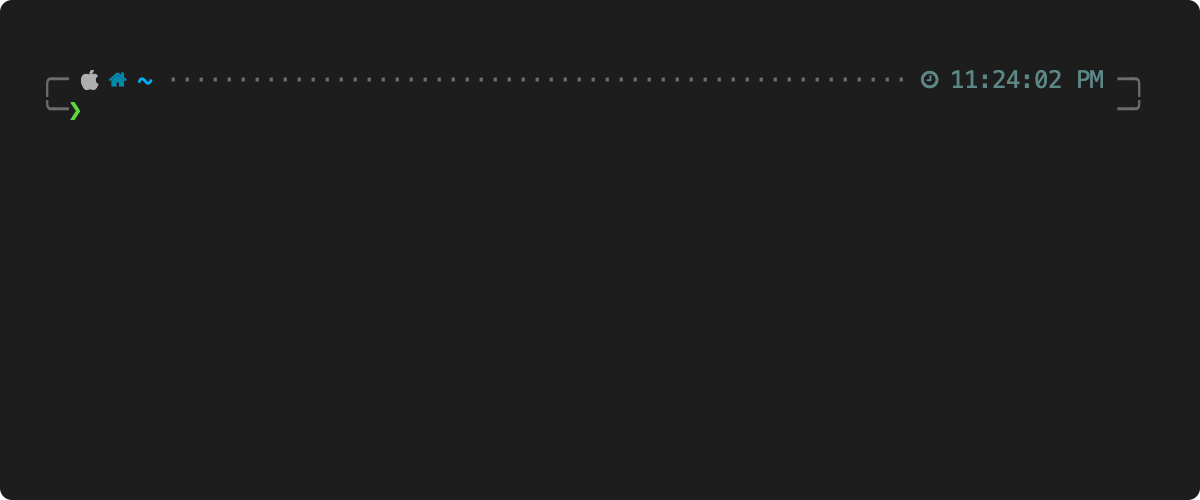nostromo
nostromo is a CLI to manage aliases through simple commands to add and remove scoped aliases and substitutions.
Managing aliases can be tedious and difficult to set up. nostromo makes this process easy and reliable. The tool adds shortcuts to your .bashrc / .zshrc that call into the nostromo binary. It reads and manages all aliases within its manifest. This is used to find and execute the actual command as well as swap any substitutions to simplify calls.
nostromo can help you build complex tools in a declarative way. Tools commonly allow you to run multi-level commands like git rebase master branch or docker rmi b750fe78269d which seem clear to use. Imagine if you could wrap your aliases / commands / workflow into custom commands that describe things you do often. Well, now you can with nostromo. 🤓
With nostromo you can take aliases like these:
alias ios-build='pushd $IOS_REPO_PATH;xcodebuild -workspace Foo.xcworkspace -scheme foo_scheme'
alias ios-test='pushd $IOS_REPO_PATH;xcodebuild -workspace Foo.xcworkspace -scheme foo_test_scheme'
alias android-build='pushd $ANDROID_REPO_PATH;./gradlew build'
alias android-test='pushd $ANDROID_REPO_PATH;./gradlew test'and turn them into declarative commands like this:
build ios
build android
test ios
test androidThe possibilities are endless and up to your imagination with the ability to compose commands as you see fit.
Getting Started
Prerequisites
- Works for MacOS and
bash/zshshells (other combinations untested but may work)
Installation
Using brew:
brew tap pokanop/pokanop
brew install nostromoUsing go get:
go get -u github.com/pokanop/nostromoInitialization
This command will initialize nostromo and create a manifest under ~/.nostromo:
nostromo initTo customize the directory (and change it from ~/.nostromo), set the
NOSTROMO_HOME environment variable to a location of your choosing.
To destroy the manifest and start over you can always run:
nostromo destroyKey Features
- Simplified alias management
- Scoped commands and substitutions
- Build complex command trees
- Shell completion support
- Preserves flags and arguments
- Execute code snippets
Usage
Managing Aliases
Aliases to commands is one of the core features provided by nostromo. Instead of constantly updating shell profiles manually, nostromo will automatically keep it updated with the latest additions.
Given that nostromo is not a shell command there are some things to note on how it makes its magic:
- Commands are generated by nostromo and executed using the
evalmethod in a shell function.- Commands and changes will be available immediately since nostromo reloads completions automatically
If you want create boring standard shell aliases you can do that with an additional flag or a config setting described below.
To add an alias (or command in nostromo parlance), simply run:
nostromo add cmd foo "echo bar"And just like that you can now run foo like any other alias.
Descriptions for your commands can easily be added as well:
nostromo add cmd foo "echo bar" -d "My magical foo command that prints bar"Your descriptions will show up in the shell when autocompleting!
Interactive Mode
You can also add commands and substitutions interactively by using just nostromo add without any arguments. This command will walk through prompts to guide adding new commands easily.
Keypaths
nostromo uses the concept of keypaths to simplify building commands and accessing the command tree. A keypath is simply a . delimited string that represents the path to the command.
For example:
nostromo add cmd foo.bar.baz 'echo hello'will build the command tree for foo 👉 bar 👉 baz such that any of these commands are now valid (of course the first two do nothing yet 😉):
foo
foo bar
foo bar bazwhere the last one will execute the echo command.
You can compose several commands together by adding commands at any node of the keypath. The default behavior is to concatenate the commands together as you walk the tree. Targeted use of ; or && can allow for running multiple commands together instead of concatenating. More easily, you can change the command mode for any of the commands to do this for you automatically. More info on this later.
Shell Aliases
nostromo allows users to manage shell aliases. By default, all commands are designed to execute the nostromo binary and resolve a command to be evaluated in the shell. This allows you to run those declarative commands easily like foo bar baz in the shell. nostromo only creates an alias as a shell function for the root command foo and passes the remaining arguments to nostromo eval to evaluate the command tree. The result of that is executed with eval in the shell. Standard shell aliases do not get this behavior.
The use of standard shell aliases provides limited benefit if you only want single tiered aliases. Additionally, nostromo commands persist in the shell since they are evaluated (i.e., changing directories via
cd).
There are two methods for adding aliases to your shell profile that are considered standard aliases:
- Use the
--alias-onlyor-aflag when usingnostromo add cmd - Set the
aliasesOnlyconfig setting to affect all command additions
For example, you can see both methods here:
nostromo add cmd foo.bar.baz "cd /tmp" --alias-only
nostromo manifest set aliasesOnly true
nostromo add cmd foo.bar.baz "cd /tmp"Adding a standard alias will produce this line that gets sourced:
alias foo.bar.baz='cd /tmp'instead of a nostromo command which adds a shell function:
foo() { eval $(nostromo eval foo "$*") }Notice how the keypath has no affect in building a command tree when using the alias only feature. Standard shell aliases can only be root level commands.
Scoped Commands & Substitutions
Scope affects a tree of commands such that a parent scope is prepended first and then each command in the keypath to the root. If a command is run as follows:
foo bar bazthen the command associated with foo is concatenated first, then bar, and finally baz. So if these commands were configured like this:
nostromo add cmd foo 'echo oof'
nostromo add cmd foo.bar 'rab'
nostromo add cmd foo.bar.baz 'zab'then the actual execution would result in:
echo oof rab zabStandard behavior is to
concatenatebut you can easily change this with themodeflag when usingaddor globally. More information under Execution Modes.
Substitutions
nostromo also provides the ability to add substitutions at each one of these scopes in the command tree. So if you want to shorten common strings that are otherwise long into substitutions, you can attach them to a parent scope and nostromo will replace them at execution time for all instances.
A substitution can be added with:
nostromo add sub foo.bar //some/long/string slsSubsequent calls to foo bar would replace the subs before running. This command:
foo bar baz slswould finally result in the following since the substitution is in scope:
oof rab zab //some/long/stringComplex Command Tree
Given features like keypaths and scope you can build a complex set of commands and effectively your own tool 🤯 that performs additive functionality with each command node.
You can get a quick snapshot of the command tree using:
nostromo manifest showWith nostromo, you can also visualize the command tree (or manifest) in several other ways including as json, yaml and a tree itself.
Setting the verbose config item prints more detailed information as well.
Execution Modes
A command's mode indicates how it will be executed. By default, nostromo concatenates parent and child commands along the tree. There are 3 modes available to commands:
concatenate Concatenate this command with subcommands exactly as defined
independent Execute this command with subcommands using ';' to separate
exclusive Execute this and only this command ignoring parent commandsThe mode can be set when adding a command with the -m or --mode flag:
nostromo add cmd foo.bar.baz -m exclusive "echo baz"A global setting can also be set to change the mode from the default concatenate with:
nostromo manifest set mode independentAll subsequent commands would inherit the above mode if set.
Shell Completion
nostromo provides completion scripts to allow tab completion. This is added by default to your shell init file:
eval "$(nostromo completion)"Even your commands added by nostromo get the full red carpet treatment with shell completion. Be sure to add a description and tab completion will show hints at each junction of your command. Cool right! 😎
Execute Code Snippets
nostromo provides the ability to supply code snippets in the following languages for execution, in lieu of the standard shell command:
ruby- runs ruby interpreterpython- runs python interpreterjs- runs nodeperl- runs perl interpreter
nostromo add cmd foo --code 'console.log("hello js")' --language jsFor more complex snippets you can edit ~/.nostromo/manifest.yaml directly but multiline YAML must be escaped correctly to work.
Credits
- This tool was bootstrapped using cobra.
- Colored logging provided by aurora.
- Nostromo fan art supplied by Ian Stewart.
- Gopher artwork by @egonelbre and original by Renee French.
Contibuting
Contributions are what makes the open-source community such an amazing place to learn, inspire, and create. Any contributions you make are greatly appreciated.
- Fork the Project
- Create your Feature Branch (
git checkout -b feature/AmazingFeature) - Commit your Changes (
git commit -m 'Add some AmazingFeature') - Push to the Branch (
git push origin feature/AmazingFeature) - Open a Pull Request
License
Distributed under the MIT License.







